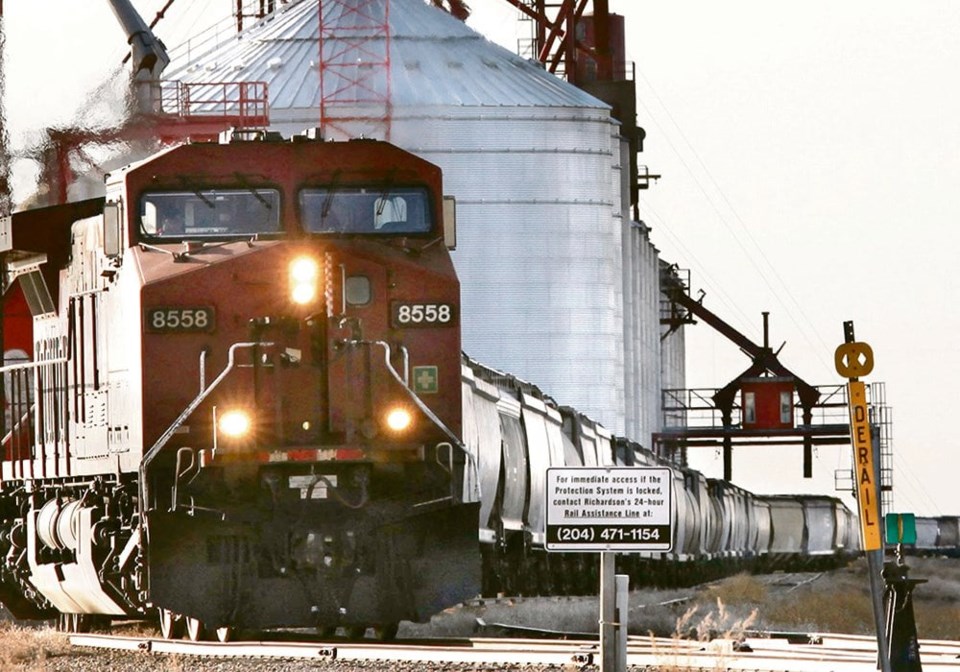SASKATOON — Canadian farm groups used to fret that Canada was falling behind the United States in signing free trade agreements.
They can now rest easy because the U.S. is no longer negotiating those types of pacts, much to the chagrin of U.S. farm groups.
Virginia Houston, director of government affairs with the American Soybean Association, says president Joe Biden’s administration feels FTAs pit U.S. domestic industries against one another.
That was one of the messages U.S. Trade Representative Katherine Tai delivered to Congress when she testified in front of the House and Senate earlier this month.
“One thing she said multiple times is that while farmers and agriculture benefit from traditional FTAs, workers do not,” said Houston.
“They feel that the traditional FTAs tend to disadvantage domestic manufacturing.”
However, U.S. farm groups are lamenting the loss of FTAs. The last one was the U.S.-Colombia Trade Promotion Agreement that took effect May 15, 2012.
“U.S. agriculture wants more traditional free trade agreements because FTAs include tariff reduction measures and they also include codified market access,” she said.
“Without those, it’s hard to gain footholds into new markets.”
That is why 33 U.S. farm groups recently sent a letter to Tai urging her to recommit to an aggressive trade agenda that includes FTAs.
“Export markets are essential for our survival, and comprehensive trade agreements and elimination of tariff and non-tariff barriers help ensure that U.S. agriculture can compete on an even playing field in our export markets,” stated the letter.
Tai also received another letter from 21 U.S. senators making the same point.
“While the Biden administration continually refuses to pursue traditional free trade agreements, China, Canada, the European Union, the United Kingdom and others continue to ink trade pacts that diminish American export opportunities and global economic influence,” stated that letter.
Michael Harvey, executive director of the Canadian Agri-Food Trade Alliance, is pleased Canada continues to negotiate FTAs while the U.S. has stopped.
“It can be an advantage for us if we work on these agreements where there is solid market access,” he said.
The Comprehensive and Progressive Agreement for Trans-Pacific Partnership (CPTPP) is a good case in point.
The U.S. bowed out of that pact, which gives Canadian exporters a leg up in some key markets as long as signatories to the agreement work hard to ensure market access provisions in the deal are upheld and enforced.
Canada is also negotiating agreements with Indonesia and ASEAN nations that could prove advantageous.
Harvey said the anti-FTA stance of the U.S. dates back before Biden taking office.
“We’ve definitely seen that the last three American administrations have not been interested in market access the way administrations used to be,” he said.
The Democratic Party has always been skeptical about international trade due to its strong ties to trade unions.
“But the Republicans have moved in a more nationalist direction too and are a lot more skeptical than they used to be,” said Harvey.
Both parties are fed up with China’s notorious trade practices, which is influencing their trade policies.
People are also blaming trade agreements for reduced employment in the manufacturing sector rather than pinning the blame on the real culprit, which is technological advancements, said Harvey.
He believes the Canadian government needs to take the offensive to ensure the same anti-trade sentiments don’t creep across the border. Ottawa needs to remind Canadians of the economic benefits of trade.
“People are forgetting how much trade is contributing to our standard of living,” said Harvey.
That is why he is pleased Canada recently opened its Indo-Pacific Agriculture and Agri-Food Office in Manila, Philippines, to encourage trade in that important region.
In the meantime, U.S. farm groups are hopeful their government recommits to negotiating and signing FTAs because the current tactics are not cutting it.
Houston is encouraged that many members of Congress are onboard with their lobbying effort.
“We do know our voice is being heard,” she said.



